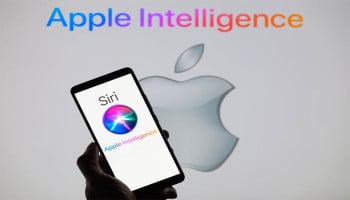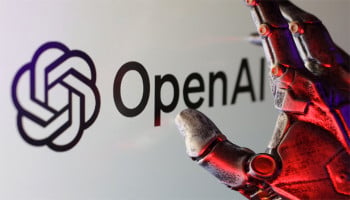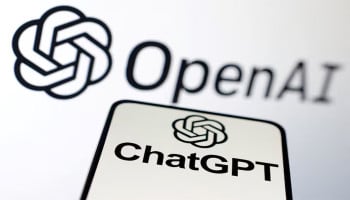
The use of artificial intelligence (AI) in education is rapidly expanding, with one of the most impactful applications emerging in assessment. Traditional testing methods are gradually being replaced by AI-driven tools that offer a more comprehensive understanding of learners' abilities.
AI-powered assessments take a more flexible and dynamic approach, moving beyond simple right-or-wrong answers to evaluate critical thinking, creativity, and real-world problem-solving skills.
Understanding AI in assessment and its role
AI enables a novel approach to assessing learning, adapting difficulty levels in response to student performance, thereby meeting individual needs and creating a personalised, holistic view of each learner’s abilities. Massive data streams—written responses, verbal interactions, problem-solving approaches—can be analysed to provide detailed insights.
At a thought-provoking panel on Sunday, 3rd November, at the School of Tomorrow (SOT) event held at Beach Luxury, educators, researchers, and technologists discussed how AI’s integration in high-stakes testing could facilitate personalised learning, address ethical concerns, and redefine educator roles.
Personalising assessments for individual needs
One of the panel’s key discussions revolved around personalising assessments with AI, enabling them to adapt to each student’s pace and understanding.
Kathleen Booth, Director of Pearson School’s Qualifications, explained, “AI can guide the student through personalised questions, adjusting based on each response to check for misconceptions and verify understanding. Imagine a world where students are tested when they’re ready, not just on a fixed schedule.”
Ismail Sabri, Senior Education Advisor at Cambridge University Press and Assessment, further noted AI’s “potential for customisation” to accommodate varied learning paces, adding, “AI testing could support differentiation by meeting students where they are. This can significantly help students who learn independently, though it may be challenging for those with unique learning needs unless accessibility is a priority.”
Ethical implications and ensuring fairness
Ethical considerations were a central theme, with panellists exploring issues such as potential biases in AI algorithms and equitable access to technology. Ensuring fairness and equity in AI-based assessments remains essential.
Ian Riley, Head of Schools at TNS Beaconhouse DHA Lahore, stated: “AI in education should serve as a tool, not a replacement. Our role as educators is to teach ethical responsibility and ensure fair access to these tools for all students.”
Ismail Sabri highlighted inclusivity concerns, stating: “To capture diverse learning profiles accurately, we need AI developed with inclusivity in mind. Regular adjustments are crucial so that all adaptive tests reflect students’ unique abilities and needs.”
The need for transparent algorithms and rigorous testing of AI systems was acknowledged to prevent biases and maintain educational integrity.
Role of educators in an AI-driven assessment landscape
The future role of educators alongside AI was widely discussed. Although AI promises more accurate assessments and instant feedback, questions were raised regarding the impact on teaching.
Emily, an educator and AI proponent, said, “It's fun to use it, but I think the trick is not to mistake it for Google. It is much more powerful than Google.”
According to Ian Riley, “AI is not here to replace education but to complement it. We must make sure teachers and students use AI in an ethical way, particularly with tools such as ChatGPT that are created to generate ideas rather than give answers.” He also stressed the need for educator training: “Until we upskill our educators in AI, these discussions remain somewhat challenging, as students often know more than we do about these technologies.”
This underscores the importance of educators in fostering students' critical thinking and creativity, even as AI tools enhance teaching practices.
Aligning AI assessments with educational standards
The challenge of aligning AI-driven assessments with educational standards was another focal point of the discussion. Kathleen Booth described the potential of AI to replace “one-size-fits-all testing” with customised assessments, stating, “We’re used to one-size-fits-all testing, but with AI, we could customise assessments based on individual progress. This would be a shift from rigid timelines and curricula, potentially reshaping school years and helping students meet curriculum goals at their own pace.”
Philosophical considerations in AI integration
As the discussion concluded, panellists delved into broader, philosophical questions about AI in education.
Emily questioned, “What do we want to educate our children for? Do we want to create creative, thoughtful individuals or just people who can rote-learn and recite?” This comment suggested a growing emphasis on fostering critical thinking over rote memorisation.
Catherine expressed concerns about over-reliance on AI, cautioning that “the next generation will not develop that body of knowledge. Unless we're very careful.” She stressed that while AI can improve accessibility, care must be taken to preserve educational values.
The panel discussion on AI and high-stakes testing illuminated both the promise and challenges AI brings to education. As education evolves, maintaining ethical considerations, preserving educators’ central roles, and aligning AI tools with educational standards are essential.
Ultimately, AI’s role in education should support learning experiences that benefit all students, fostering a future where technology and education progress in tandem.
















